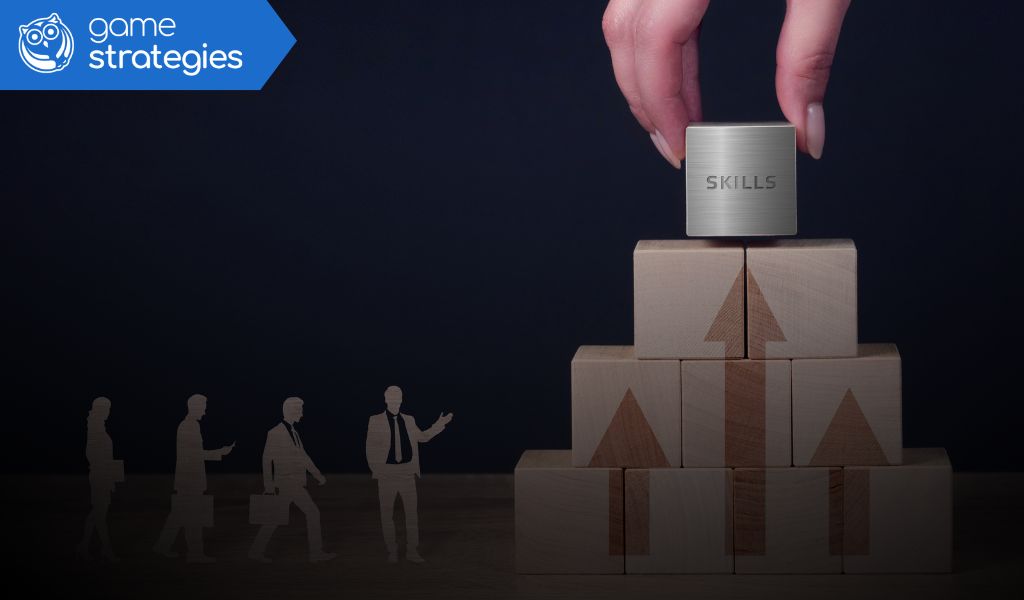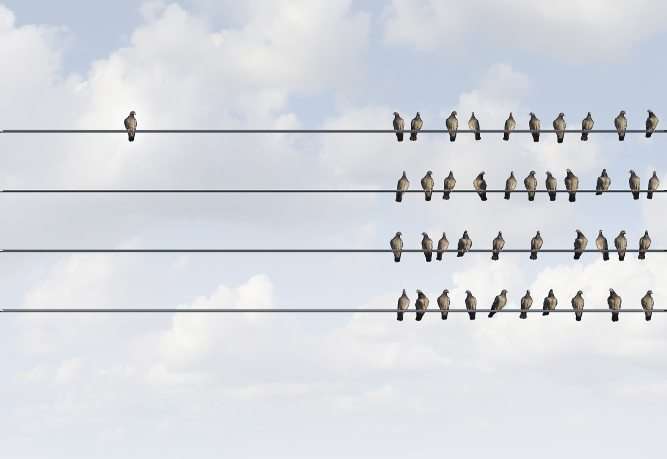In today’s professional world, understanding the difference between hard skills and soft skills is essential for career development. While hard skills refer to technical knowledge acquired through education and training, soft skills are tied to emotional intelligence, communication, and adaptability. In this article, we explore their key differences, provide practical examples, and offer strategies to achieve a balanced skill set at work. To learn how gamification can enhance the development of these skills, visit Game Strategies.
What are hard skills and soft skills?
Hard skills are measurable and certifiable competencies that are typically acquired through formal education, practice, or job experience. These include skills such as data analysis, programming, or language proficiency.
Soft skills, on the other hand, relate to interpersonal qualities and behavioural traits that impact how individuals interact, communicate, and adapt in various work situations. These are crucial for teamwork, leadership, and effective collaboration.
Why are both types of skills essential in the workplace?
In today’s job market, possessing only technical expertise is no longer sufficient. Employers seek candidates who combine specialised knowledge with interpersonal effectiveness. While hard skills ensure task execution, soft skills drive teamwork, innovation, and problem-solving.
What are hard skills?
Hard skills are job-specific abilities that are quantifiable and typically validated by degrees, certifications, or hands-on experience. These allow employers to objectively assess a candidate’s technical suitability for a role.
In-demand hard skills in the workplace
Proficiency with digital tools and software
Mastery of tools such as Excel, Photoshop, or CRM systems is vital across numerous industries.
Data analysis and metric-driven decision-making
Organisations value professionals who can interpret complex data to guide strategic choices.
Project management and agile methodologies
Frameworks like Scrum and Kanban help teams streamline workflows and improve efficiency.
Programming and web development
Languages such as Python, JavaScript, and Java are highly sought-after in the tech sector.
Search engine optimisation (SEO) and paid marketing (SEM)
Digital marketing success relies on experts who can optimise content and manage paid campaigns to boost visibility.
Accounting and financial management
Financial literacy is critical for budgeting, forecasting, and resource allocation.
What are soft skills?
Soft skills are non-technical abilities that govern how individuals interact, manage emotions, and handle workplace dynamics. These skills are key to leadership, adaptability, and communication.
Essential soft skills for professional success
Strategic thinking and problem-solving
The ability to navigate complex challenges and devise effective solutions is universally valued.
Effective communication and teamwork
Clear idea-sharing and collaboration are essential in modern team-based environments.
Time management and organisation
Prioritising tasks and managing time leads to enhanced productivity.
Empathy and leadership
Understanding and motivating others fosters a positive work culture.
Adaptability and resilience
Being able to adjust to change and recover from setbacks is vital in dynamic industries.
Key differences between hard skills and soft skills

Impact on productivity and career growth
Hard skills enable the performance of specific duties, while soft skills support seamless interaction with colleagues and clients, leading to stronger professional growth.
Why employers increasingly value soft skills
As automation handles more technical functions, employers place greater emphasis on communication, creativity, and critical thinking—qualities that machines cannot replicate.
Are hard and soft skills complementary?
Yes. Balancing technical expertise with interpersonal aptitude is crucial. A highly skilled programmer, for instance, may struggle in team settings without strong communication skills.
How to balance hard and soft skills in the workplace
The importance of continuous professional development
Ongoing learning helps individuals update technical competencies and refine interpersonal abilities, maintaining competitiveness in the job market.
How to identify which skills to improve
Self-assessments and feedback from managers or peers can highlight areas for development.
Methods to enhance both hard and soft skills
Attending training sessions, joining conferences, and applying skills in real-world scenarios are effective ways to develop a well-rounded skill set.
How to effectively develop hard skills
Courses, certifications, and technical training
Investing in accredited programmes helps build recognised, job-ready technical knowledge.
Digital tools and online resources
Platforms like Coursera and Udemy offer convenient access to technical courses across industries.
Practice and specialisation in key areas
Engaging in practical projects strengthens understanding and leads to mastery.
How to strengthen soft skills in the workplace
Techniques to improve communication and leadership
Active listening and empathy enhance collaboration and build trust.
Exercises for developing empathy and emotional intelligence
Practices like mindfulness and reflection can boost self-awareness and interpersonal sensitivity.
Ways to increase creativity and problem-solving
Brainstorming and critical thinking exercises foster innovation and agility.
Understanding the difference between hard skills and soft skills is vital for modern professionals. Hard skills provide the technical foundation to perform specific tasks, while soft skills enable individuals to work effectively within teams and organisations. Mastering both is the key to long-term career success. Explore how gamification can support the learning of these skills by visiting Game Strategies.
¿De cuánta utilidad te ha parecido este contenido?
¡Haz clic en una estrella para puntuarlo!
Promedio de puntuación 5 / 5. Recuento de votos: 1
Hasta ahora, ¡no hay votos!. Sé el primero en puntuar este contenido.









